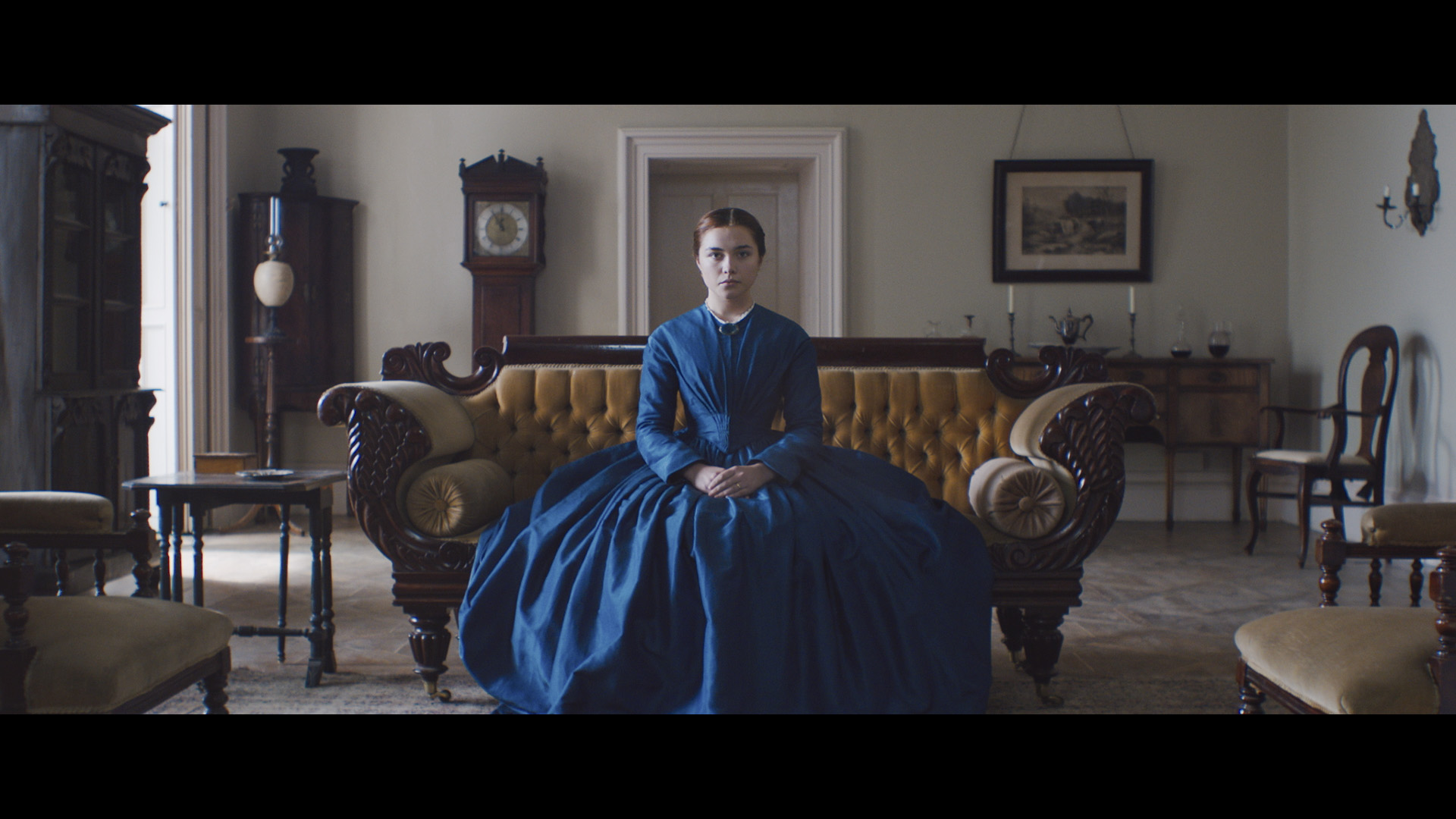
William Oldroyd’s stunning adaptation of Nikolai Leskov’s novel, with its unique ties to Shakespeare’s tragedy offers a radically new view of a time and place usually idealised in film, wealthy rural Britain in the middle 1800’s. Gone are the demure, delicate flowers of the novels replaced by a rapacious young woman named Catherine (Florence Pugh) who experiences a different kind of blossoming. Sold by her father along with a parcel of land to a cruel man and his son, she is emotionally, sexually and physically abused, held captive in their grand home. She remains quiet until she forces a sexual encounter with a Spanish labourer that brings her repressed fire to the surface. All hell breaks loose. Oldroyd, a theatre and opera director makes an auspicious debut feature, breaking all the rules to make the story as realistic and naturalistic. We spoke with Oldroyd in Toronto.
[youtube url=”https://www.youtube .com/watch?v=D3F38mef2no” width=”500″ height=”300″]
This is a stellar debut film. It’s stunning visually, emotionally and even in terms of the sound. But given your background in opera, why no score?
We had provisions in the budget but ultimately I wanted to start to get the thing to work emotionally first and then if we needed music to help us we could bring it in if necessary. It would get us out of difficulty if need be. But music is too often used as an emotional signpost, the big build. It was a response to the environment. The walls were so thick and no matter where went you didn’t hear a thing, wind, trees, birds. It was useful as a place to put Catherine. All you can hear is her breathing, clocks and when she opens a window, the air rushes in. That’s life for her.

SAN SEBASTIAN SPAIN – SEPTEMBER 19 William Oldroyd attends Lady Macbeth photocall during 64th San Sebastian Film Festival at Kursaal on September 19 2016 in San Sebastian Spain Photo by Juan Naharro Gimenez WireImage
There are strong connections to Macbeth in terms of the all-ambitious woman, but it’s a different story in the novel and the film.
Nikolai Leskov gave her the nickname. In the 19th century couldn’t understand why she did such despicable things, but she was not unsexed as in the play. We felt actually young woman could do these things if pushed, without asking to be unsexed.

We don’t see ambitious, deadly women in films set in that time period. They’re idealised. But the story tells us real flesh and blood femme fatales are everywhere and always have been.
It was very important for us, and for Alice Birch writing the screenplay, that the things Catherine did would not be that different from women today. It was only 150 years ago. They have the same things, sexual appetite and desires, which are basically her independence.
How do you suppose someone lives with decay in her soul and such a body count?
I think she just became obsessed and really can’t see clearly. And her impetuous nature doesn’t consider consequences and that’s what makes her so compelling to watch. At the end she sits down and all those things that had been strangers to her are now gone. She rid herself all those things trapping her but is she any more independent?
Florence Pugh is perfect, she has an innocent, open face and but such fire.
Exactly. We didn’t cast with the traditional model in mind, you couldn’t ask for British period drama casting. We felt what Alice wrote was so different we needed someone who would break that mould and be fresh, independent and passionate. What we see in the paintings of the period was idealised. How can women have changed so much in 150 years? With Florence she was independently minded, charismatic, she had excellent instincts and crucially was a total defender of Catherine’s decision and never judged her. Somebody had to always defend her because we didn’t want someone portraying her from a distance. You can’t form a judgement on her and why she’s doing it and defend her.

The characters’ relationships are so toxic that you have to wonder if they hung out onset.
Florence didn’t stay in character so much, but Cosmo who plays Sebastien stayed in character for the full 24 day shoot. When he wasn’t working, he did manual labour; he helped the crew, lugged boxes and equipment and looked after the horses. He even slept outside at night. The scene where we meet him in the stables, he’d had a very uncomfortable night, but he wanted that. I felt I should support actors in their process. But actors don’t work similarly. Florence was always ready for a scene. When she meets her husband Paul at the beginning it is really when they met. We kept them apart. They ate apart and got their makeup apart so when they met onset it created Florence’ embarrassment.
Close attention is paid to the weather. Why?
It provided a powerful contrast. It is still a dangerous environment when she goes outside. Where can she run to? When she is happiest she looks out the window and it’s not sunny and bucolic, it’s windy and rainy and dangerous. We felt in a certain sense that it was a useful contrast to the very dry and airless environment she lived in.
The art direction’s sensational and minimal, quiet and foreboding. And then there is her bedroom.
The bedroom has a very high elevation. She looks like a princess trapped in a tower. She looks into the treetops. It was quite cruel because she could see what was out there but never achieve it. She sits by the window and she can’t call out and there is no relief from her miserable existence. Also the bedroom is a strange place, the scene of a murder, it’s also where she has sex, where she was sexually abused and humiliated by her husband and yet she continued to sleep there even after someone was murdered there. It’s the heart of the film.
by @annebrodie
BFCA BTJA AWFJ TFCA FIPRESCI
www.whatshesaidtalk.com